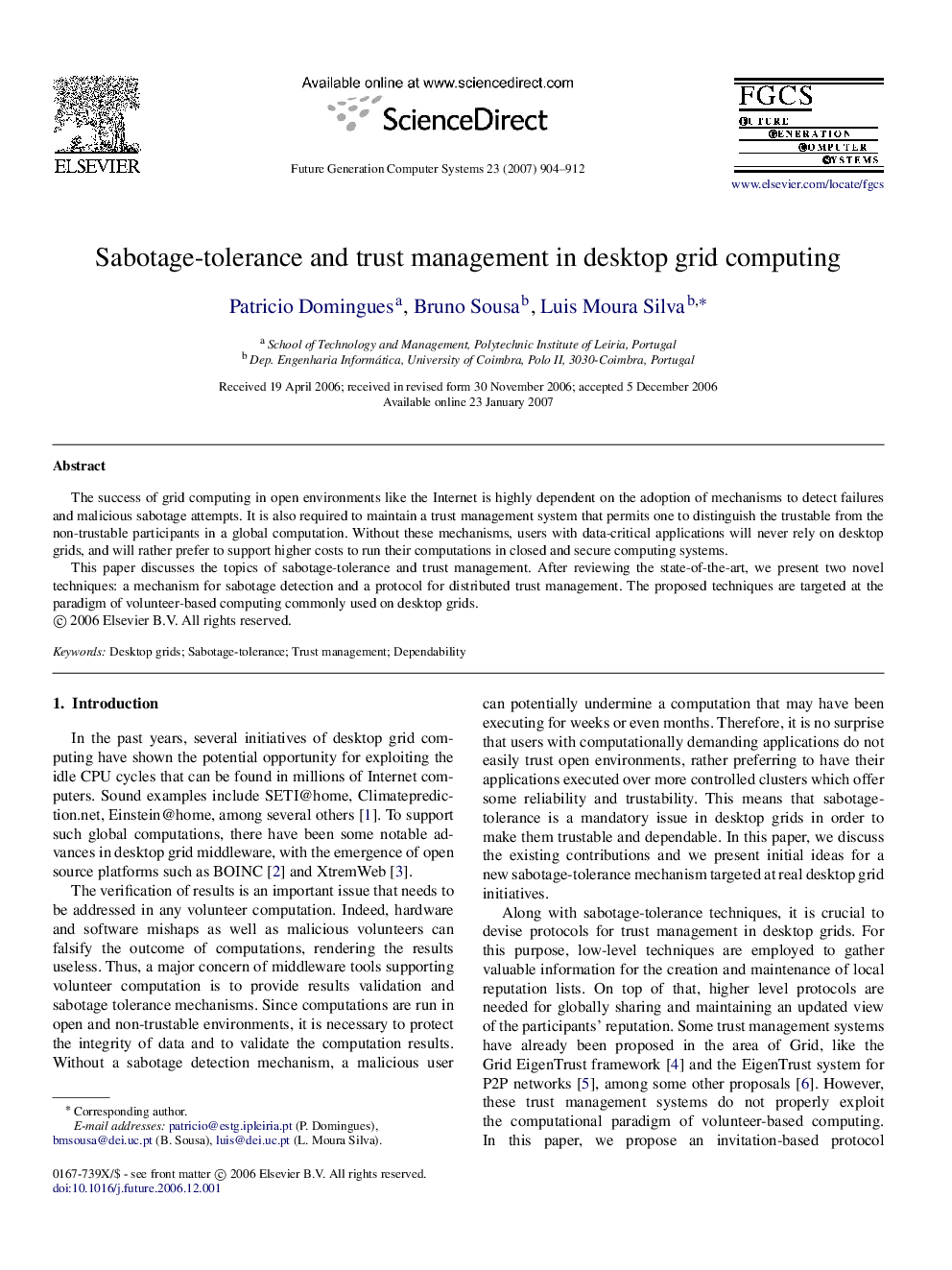| Article ID | Journal | Published Year | Pages | File Type |
|---|---|---|---|---|
| 424976 | Future Generation Computer Systems | 2007 | 9 Pages |
The success of grid computing in open environments like the Internet is highly dependent on the adoption of mechanisms to detect failures and malicious sabotage attempts. It is also required to maintain a trust management system that permits one to distinguish the trustable from the non-trustable participants in a global computation. Without these mechanisms, users with data-critical applications will never rely on desktop grids, and will rather prefer to support higher costs to run their computations in closed and secure computing systems.This paper discusses the topics of sabotage-tolerance and trust management. After reviewing the state-of-the-art, we present two novel techniques: a mechanism for sabotage detection and a protocol for distributed trust management. The proposed techniques are targeted at the paradigm of volunteer-based computing commonly used on desktop grids.
